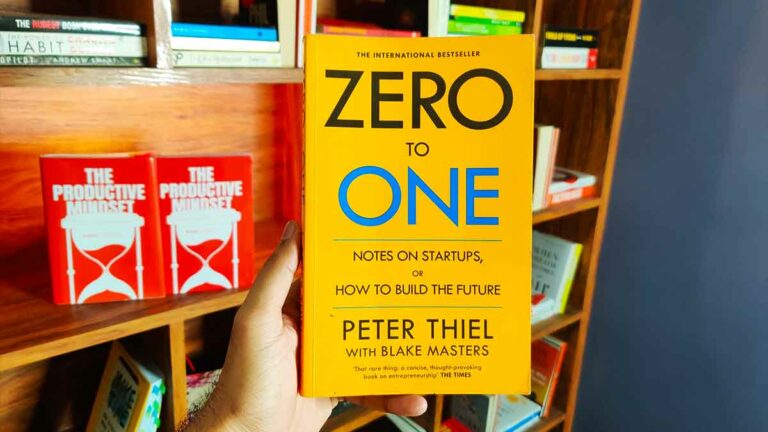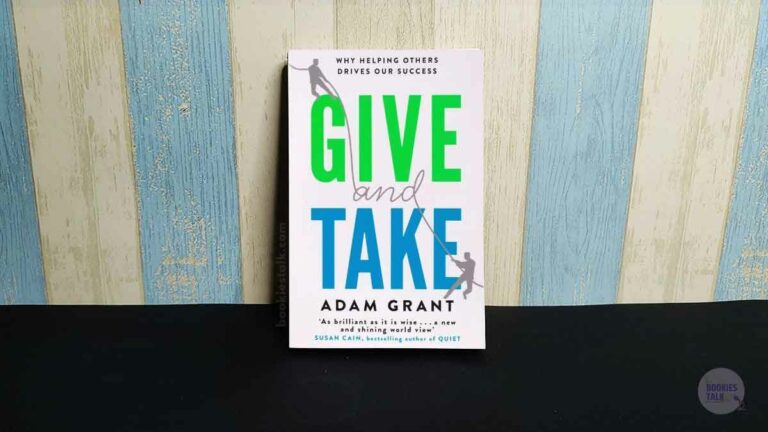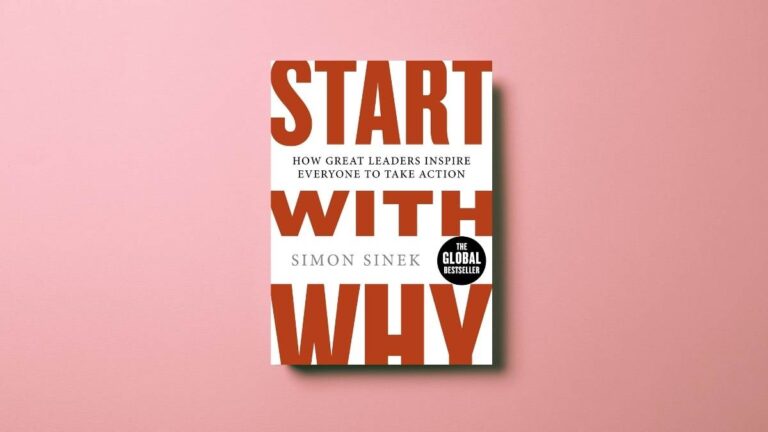The Hard Thing about Hard Thing Summary – Ben Horowitz

Ben Horowitz author of The Hard Thing about Hard Thing says that there is no formula for building a high-tech company but there are pieces of advice and experiences that can help with the hard things.
The book will give you the needed formula to build a team, organize your workflows, and become a good leader.
There are many books written on business management and each book will have different experiences as it’s written by different authors, so if you wanted to know how Ben Horowitz started his business journey and what he has done right and wrong during his journey then do read his book.
Enter your email address To join the newsletter. I will be with you every Sunday at 9:00 AM (IST). See you on Sundays.
The Hard Thing About Hard Thing Summary
The best thing about books is that you come to know what kind of mistakes other people have made and the same you will learn from this book along with some of the lessons on how you can manage companies and how CEOs should take responsibility if a thing goes wrong.
The book has lots of wisdom that will help you to build a better team, identify the mistakes you have made, and a lot more.
So let me share with you some of the lessons from The Hard Thing about Hard Thing by Ben Horowitz…
Also, you might find this book summary bit boring as its about business. Still, I would recommend you to read it because it might help in the coming time because we’re about to talk about leadership in business.
When Should You Sell Your Company
One of the most difficult decisions that a CEO ever makes is whether to sell the company or not.
Logically, determining whether selling a company will be better in the long term than continuing to run it stand-alone involves a huge number of factors, most of which are speculative or unknown.
And if you are the founder, the logical part is the easy part.
The task would be far simpler if there were no emotions involved. But selling your company is always emotional and deeply personal.
You can take my website as an example,
If someone emailed by saying, I want to buy your website by XYZ amount, will I sell it?
The answer is NO because I don’t write articles here on BookiesTalk for just money, I have other websites where I write for money
So if someone emailed by saying, I want to buy your other ABC website then I will sell it for a good amount of money.
I started this website for book notes and will remain the same, in short, it’s not for sale!
TYPES OF ACQUISITIONS
For the purpose of this discussion, it is useful to think about technology acquisitions in three categories:
- Talent and/or technology: When a company is acquired purely for its technology and/or its people. These kinds of deals typically range between $5 million and $50 million.
- Product: is when a company is acquired for its product, but not its business. The acquirer plans to sell the product roughly as it is but will do so primarily with its own sales and marketing capability. These kinds of deals typically range between $25 million and $250 million.
- Business: this is when a company is acquired for its actual business (revenue and earnings). The acquirer values the entire operation (product, sales, and marketing), not just the people, technology, or products. These deals are typically valued (at least in part) by their financial metrics and can be extremely large (such as Microsoft’s $30 billion-plus offer for Yahoo).
My take on the subject is most applicable to business acquisitions, with some relevance to product acquisitions, and will be fairly useless if you are selling people and/or technology.
Sell or Not?
When analyzing whether you should sell your company, a good basic rule of thumb is:
- If You are very early on in a very large market and
- If you have a good chance of being number one in that market, then you should remain standalone.
The reason is that nobody will be able to afford to pay what you are worth because nobody can give you that much forward credit. For an easy-to-understand example, consider Google.
When they were very early, they reportedly received multiple acquisition offers for more than $1 billion.
These were considered very rich offers at the time and they amounted to a gigantic multiple. However, given the size of the ultimate market, it did not make sense for Google to sell.
In fact, it didn’t make sense for Google to sell to any suitor at any price that the buyer could have paid.
Why?
Because the market that Google was pursuing was actually bigger than the markets that all of the potential buyers owned and Google had built a nearly invincible product lead that enabled them to be number one.
So, the judgment that you have to make is:
- Is this market really much bigger (more than an order of magnitude) than has been exploited to date?
- Are we going to be number one?
If the answer to either (a) or (b) is no, then you should consider selling.
If the answers to both are yes, then selling would mean selling yourself and your employees short.
When faced with the decision of whether to sell your company, there is no easy answer. However, preparing yourself intellectually and emotionally will help.
Expectations and Loyalty
If you have a great and loyal executive, how do you communicate all this?
How do you tell her that despite the massive effort and great job she is doing today, you might fire her next year if she doesn’t keep up with the changes in the business?
Tell them:
“You are doing a great job at your current job, but the plan says that we will have twice as many employees next year as we have right now. Therefore, you will have a new and very different job and I will have to reevaluate you on the basis of that job. If it makes you feel better, that rule goes for everyone on the team, including me.”
In providing this kind of direction, it’s important to point out to the executive that when the company doubles in size, she has a new job.
Related: Must-Read Books
This means that doing things that made her successful in her old job will not necessarily translate to success in the new job.
In fact, the number-one way that executives fail is by continuing to do their old job rather than moving on to their new job.
But, what about being loyal to the team that got you here?
If your current executive team helped you grow your company tenfold, how can you dismiss them when they fall behind in running the behemoth they created?
The answer is that your loyalty must go to your employees, the people who report to your executives.
Your engineers, marketing people, salespeople, and finance and HR people are doing the work. You owe them a world-class management team.
That’s the priority.
The Two types
You will come across two times of CEOs:
- One CEO will have a visionary mindset, know where to take the company, and is willing to take any kind of decision for that.
- The second CEO loves to research, orders the employees what to do and what not, and gives the orders which teams follow, in short, the company behaves the way this CEO behaves.
To be good CEO, one needs to have equal qualities to both of these CEOs, one needs to understand the employees, and needed to create a well-organizational structure.
Questions for the Head Of Enterprise Sales Force
At the end of the book, the author mentioned some of the questions for the Head Of the Enterprise Sales Force from which I will be adding some of them:
Is she smart enough?
- Can she effectively pitch you on her current company?
- How articulate is she on the company and market opportunity that you are presenting to her now?
- Will she be able to contribute to the strategic direction of your company in a meaningful way?
Does she know how to hire salespeople?
- What is her profile?
- Ask her to describe a recent bad hire. How does she find top talent?
- What percentage of her time is spent recruiting?
- How does she test for the characteristics she wants with her interview process?
- How many of her current people want to sign up?
- Can you reference them and validate that?
- Could you pass her sales interview test?
- Should you be able to pass?
- Does she know how to hire sales managers?
- Can she define the job? Can she test for the skills?
Does she know how to do big deals?
- Has she made existing deals much larger?
- Will her people be able to describe that?
- Has she accelerated the close of a large deal?
- Does she have customers who will reference this?
- Does she understand marketing?
- Can she articulate the differences between brand marketing, lead generation, and sales force enablement without prompting?
How quickly can she diagnose?
- Does she know your competition?
- Does she know what deals you are in right now?
- Has she mapped your organization?
The Hard Thing About Hard Thing Quotes
“Until you make the effort to get to know someone or something, you don’t know anything.”
“TAKE CARE OF THE PEOPLE, THE PRODUCTS, AND THE PROFITS—IN THAT ORDER”
“Build a culture that rewards, not punishes, people for getting problems into the open where they can be solved.”
“Sometimes an organization doesn’t need a solution; it just needs clarity.”
The Hard Thing About Hard Thing Review
Yes, the author has talked about lots of things that will help you to become a better leader. You also need to keep in mind, this book is written from Ben Horowitz’s perspective, so you might not agree on certain things, which is fine.
It must read if you have just started a new business or want to start in the coming years.
BUY The Hard Thing About Hard Thing:
Love What You Read, You Might Like These too…
By the way, we also have a WhatsApp Channel! If you love reading, this is the perfect place for you to join—and the best part? It’s completely FREE!






